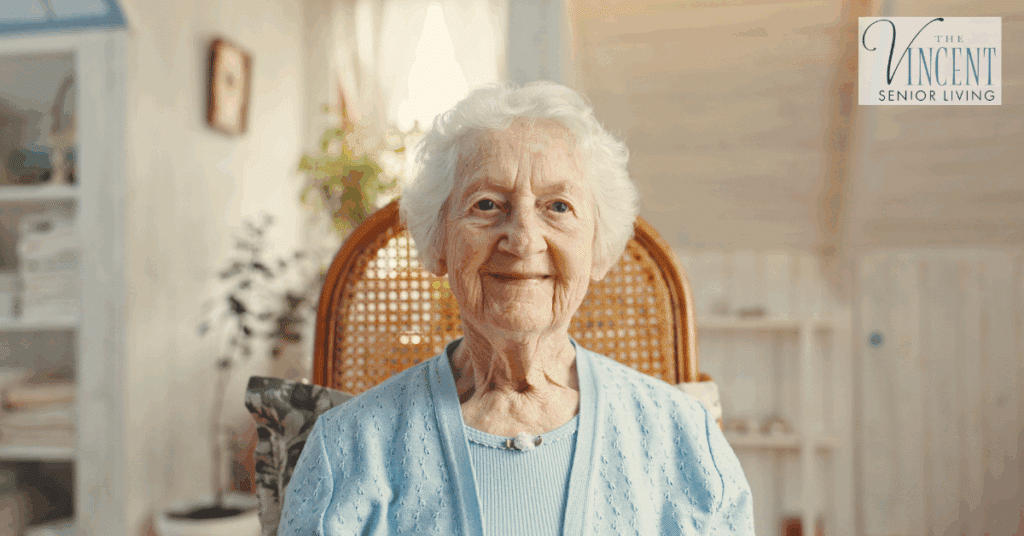When someone you love is living with dementia, even the most ordinary parts of the day can start to feel different. Getting dressed is a perfect example. What used to...
Read more
The Importance of Routines in Dementia Care for the Elderly

For a loved one living with dementia, the world can often feel uncertain. Creating and maintaining consistent daily routines can significantly improve their overall well-being and quality of life. Routines provide structure, a sense of stability, and comforting predictability. When thoughtfully designed, they can make a profound difference in the lives of both individuals with dementia and their care partners, forming a cornerstone of effective dementia care for the elderly.
Why Routines Matter in Dementia Care for the Elderly
A predictable daily schedule is a cornerstone of excellent dementia care for the elderly, offering vital support for both cognitive abilities and emotional health.
People with dementia often experience memory loss. Memory challenges typically affect recent events first, making it harder to learn new things or remember what happened yesterday. However, memories from years past and daily habits often stay clearer. This is why established routines help those receiving elderly and dementia care move through their day with more ease and fewer moments of uncertainty.
Tips for Developing a Daily Routine
Creating effective daily patterns in dementia care for the elderly means finding the sweet spot between structure and adaptability. These practical tips help develop a supportive daily flow that feels natural rather than forced:
Start with Your Loved One’s Preferences
Think about what made your loved one happy throughout their life and honor these habits. For instance, if your mom or dad always liked their evening tea, or Sunday dinners were sacred family time, it’s important to keep that tradition alive. These familiar moments become anchors in their day, offering both comfort and a sense of who they are.
Prioritize Important Tasks First
Start each day with the essentials – regular meals, daily movement, and medications on schedule. When these key moments happen at predictable times, it creates a structure. Residents know what’s coming. This predictability matters in dementia care for the elderly because it brings comfort and confidence throughout the day.
Use Visual and Verbal Cues
Pictures speak louder than words when memory fades. A photo of breakfast on the kitchen wall or a simple chart showing the day’s activities can make all the difference in dementia care for the elderly. Add gentle voice reminders, too. “Time for your morning walk” works better than expecting someone to remember on their own. Together, these simple tools help loved ones stay engaged and connected to their day.
Incorporate Meaningful Activities
Bring back the activities that once brought joy. The person who spent weekends tending roses might light up arranging flowers. Someone who played piano might enjoy listening to familiar tunes in dementia care for seniors. These connections to past passions do more than pass the time. They remind residents who they are beyond their memory challenges.
Make Housekeeping a Team Effort
Let your loved one help with simple tasks. Maybe they dry the dishes while you wash, or sort socks while you fold shirts. Perfect results don’t matter here. What counts is feeling useful. When you thank them for their help, you’re giving them something precious – a sense that they still contribute, that they still matter.
Leave Room for Flexibility
Some days are harder than others. Energy dips, moods shift, unexpected visitors arrive. That’s life. Good dementia care for the elderly means reading the moment and adjusting. The schedule serves the person, not the other way around.
Collaborate with Care Partners
When several people share caring responsibilities, everyone needs to be on the same page. Share the daily schedule, talk about what works, and update each other on changes. This teamwork creates smoother days in dementia care for the elderly.
How Structured Routines Help in Caring for Elders with Dementia
Daily patterns do more than organize time – they transform the entire care experience:
Reduce Anxiety
When each day follows a gentle pattern, uncertainty fades away. Loved ones feel calmer knowing breakfast comes before their morning activity, lunch happens midday, and evening brings quiet time. This knowledge brings peace to their world.
Support Cognitive Function
Every familiar action exercises the brain. Brushing teeth, setting the table, watering plants – these simple tasks spark memories and keep minds engaged. The repetition strengthens neural pathways that might otherwise weaken.
Promote Physical Health
Regular meals keep nutrition on track. Daily walks maintain strength. Scheduled rest prevents exhaustion. These simple anchors work together in caring for elders with dementia, supporting the body while nurturing the spirit. Each element of dementia care for the elderly builds toward better health outcomes.
Preserve Independence
A daily schedule lets residents do more for themselves. Getting dressed becomes easier when it happens at the same time each morning. Making the bed feels natural when it’s part of the wake-up routine. These small victories matter deeply.
Improve Sleep Patterns
Memory challenges often disrupt sleep. But when days have rhythm – active mornings, calm afternoons, peaceful evenings – the body remembers when to rest. Making restful sleep more consistent becomes possible through thoughtful scheduling.
Foster Emotional Stability
Structure brings calm. When people receiving care for seniors with dementia understand their day, they relax. They smile more. They engage better with others. This emotional balance creates brighter days for everyone.
Create Stability for Care Partners
Schedules help families, too. Planning becomes simpler in dementia care for the elderly when everyone knows the routine. Care partners find their own pace, balancing support duties with personal needs. This balance keeps everyone healthier.

Challenges and How to Navigate Them
Even the best routines face bumps in the road. Health fluctuates, moods change, life happens. Working through these moments in dementia care for the elderly requires patience and creativity.
Here’s what works when you need to adjust:
- Be flexible within structure: Keep the framework but adjust the details when a resident needs extra rest or could use a gentler pace.
- Communicate clearly and calmly: Simple words and warm tones work best. Show rather than tell when possible.
- Focus on emotional cues: When a loved one resists an activity, respect their feelings. Come back to it later when they’re more receptive. Their comfort matters more than the schedule.
- Re-evaluate as needed: Memory care journeys change over time. Review and refresh routines monthly to keep them helpful.
Professional memory care communities provide expert guidance when managing routines at home becomes challenging. These communities enhance the quality of life for individuals with dementia through structured yet flexible daily activities and care.
Continuing the Journey Together
At The Vincent Senior Living Community in Lafayette, Louisiana, we know that meaningful routines create more than order – they open doors to joy, connection, and purpose. Quality dementia care for the elderly focuses on comfort, not rigid schedules.
For families searching for peace of mind and care partners needing professional support, thoughtfully designed routines offer a foundation for better days ahead. Our secure community specializes in memory support that honors each resident’s unique needs while maintaining beneficial structure.
Ready to discover how the right environment transforms daily life? Schedule your personal tour of The Vincent. Experience firsthand how thoughtful routines bring comfort and connection to each resident’s day.
Related Posts
Winter brings holiday joy, warm gatherings, and peaceful snowy evenings. But for people with dementia and their families, colder months can bring unique challenges. Temperature drops, shorter days, and less...
Read moreLiving with a loved one who has dementia brings unique moments. Some days flow smoothly. Others test your patience when anger surfaces unexpectedly. In senior memory care communities, care partners...
Read moreRecent Posts
Related Posts
When someone you love is living with dementia, even the most ordinary parts of the day can start to feel different. Getting dressed is a perfect example. What used to...
Read moreWinter brings holiday joy, warm gatherings, and peaceful snowy evenings. But for people with dementia and their families, colder months can bring unique challenges. Temperature drops, shorter days, and less...
Read moreLiving with a loved one who has dementia brings unique moments. Some days flow smoothly. Others test your patience when anger surfaces unexpectedly. In senior memory care communities, care partners...
Read more



